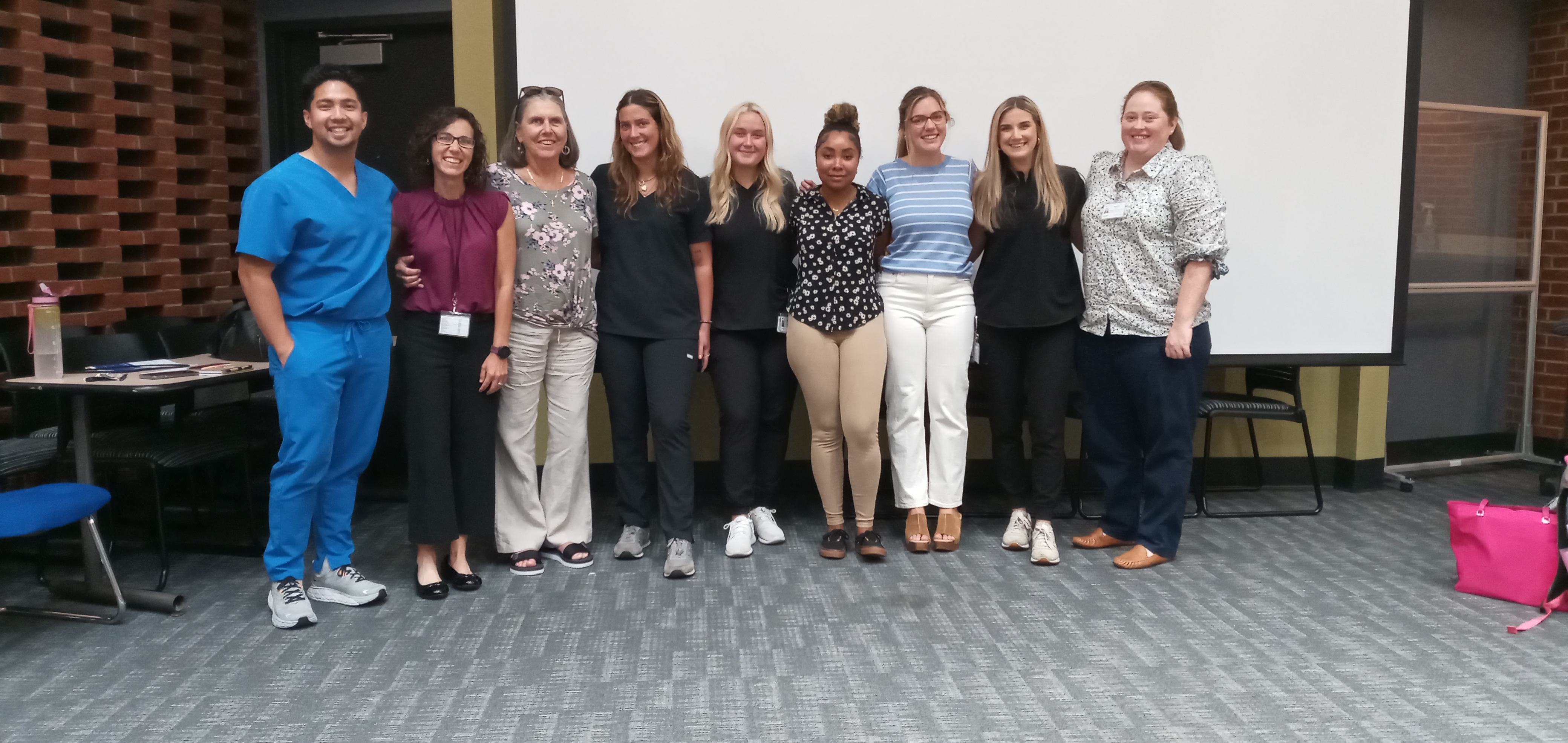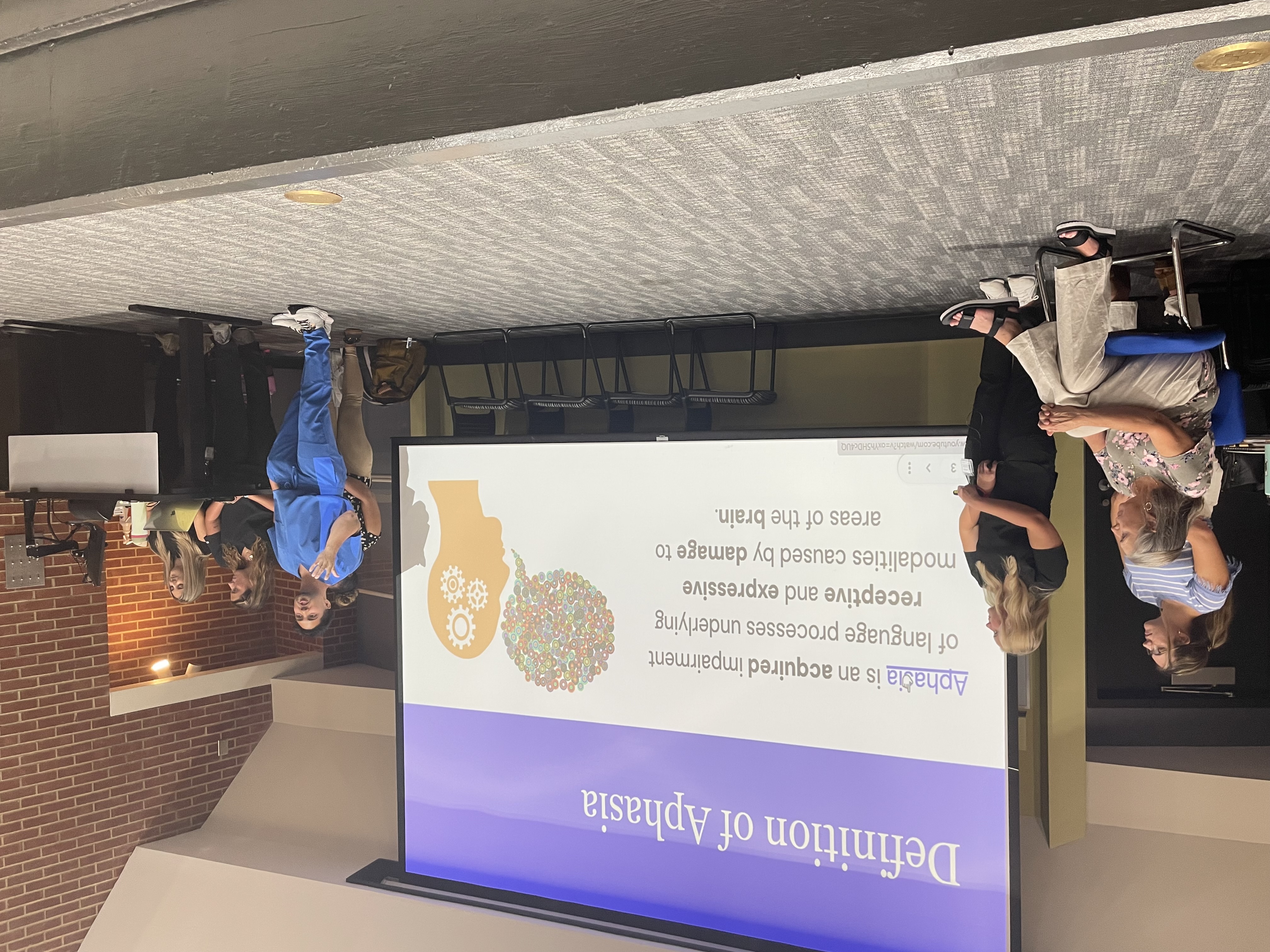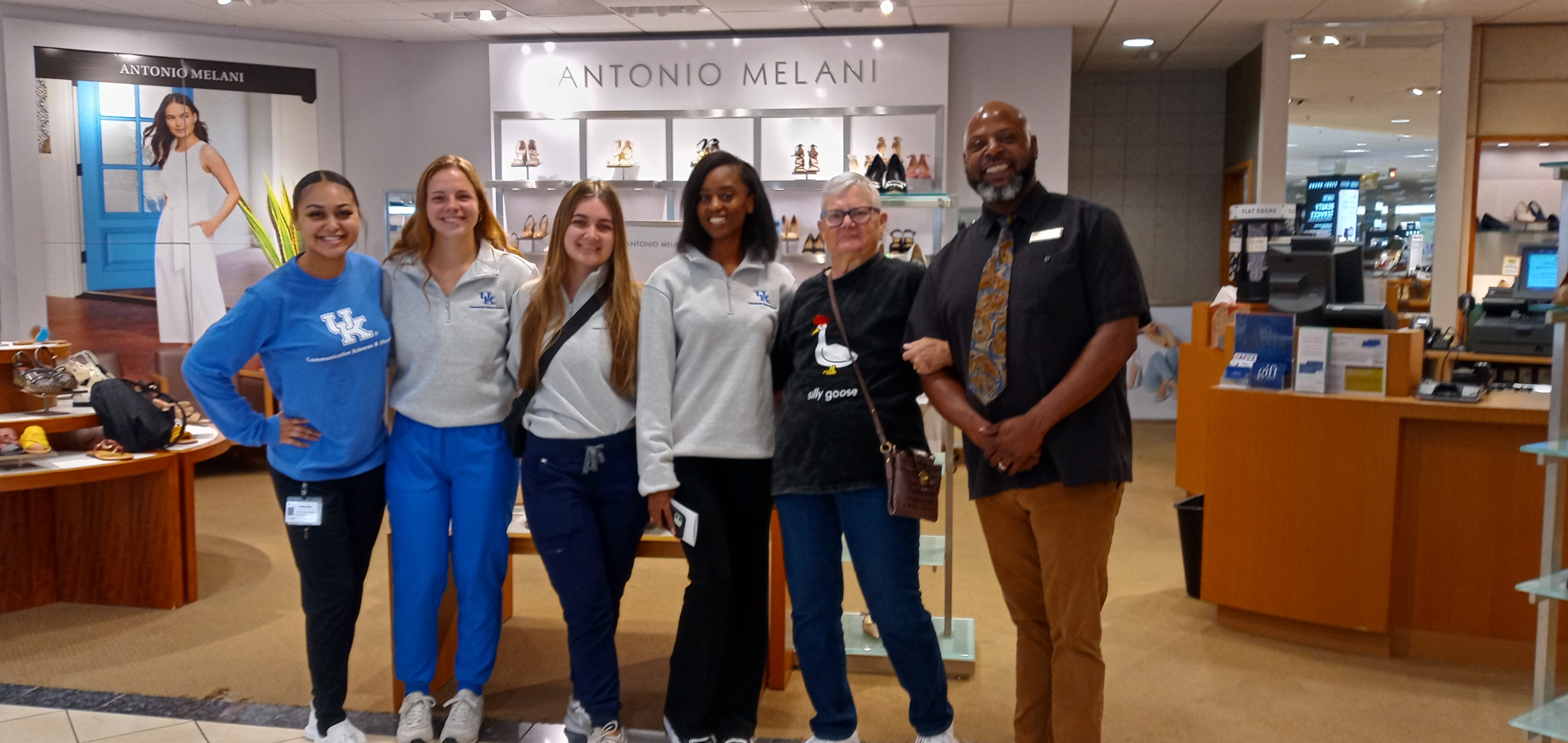UK’s CSD Students Spreading Aphasia Awareness; Lab Kicks off Thursday
Sep 6, 2023

This summer, Communication Sciences and Disorders graduate students and individuals with aphasia collaborated to heighten aphasia awareness within the community.
Aphasia, often caused by a stroke, impacts an individual’s ability to communicate — talk, understand, read, and/or write. About two million people in the United States currently have aphasia according to the National Aphasia Association. But it does not impact their intelligence.
They often know what they want to say but are unable to produce the words. These communication limitations mask their intelligence, decreasing confidence in participating in previously enjoyed activities or ensuring preventative healthcare needs (like shopping, exercising at the YMCA, driving, using public transportation, calling family/friends, attending church, dining at restaurants, attending doctor/dentist appointments).
Often individuals with aphasia become isolated with few friends and opportunities to engage in social interactions.

“While knowing this, it really opened my eyes and heart when one of the participants in the Aphasia Lab complained about a recent shopping experience — ‘The cashier ignored me and wouldn’t give me time to talk,’” said Christen G. Page, PhD, CCC-SLP and Assistant Professor in the Department of Communication Sciences and Disorders.
“Then, I began asking other individuals in the UK Aphasia Lab about their experiences in the community and learned first-hand how individuals with aphasia feel isolated in their own community,” Page continued. “This tugged at my heart because as a communication expert, I knew it was my job to educate the community about aphasia — 84.5 percent of people in the United States have never heard the term.”
In an effort to increase awareness/understanding of aphasia, graduate students partnered with individuals with aphasia to train community members, including:
- High Street YMCA employees
- Dillard's employees
- Firefighters in Winchester
- Police trainees at BCTC
- LexTran
- Students in the Physician Assistant Studies program
“We shared information about aphasia as well as communication strategies relevant to each location,” Page said.
Examples included:
- Be patient
- Allow time to respond
- Ask one question at a time
- Use writing/photos
- Provide choices
- If you don’t understand, say so
“My mission is to increase communication access by revealing communication competence of individuals with aphasia,” Page said. “They are so much more than ‘aphasia’ and want to participate in life.”

“Dr. Page has worked diligently to prepare and facilitate this opportunity for the students, patients, and community,” said Mary Beth Allen, MS CCC-SLP, and Telehealth Support Services Director. “Her genuine enthusiasm and passion for teaching and for improving the lives of those impacted by aphasia is evident. The outreach component of this project will have a positive impact on the surrounding communities now and in the future.”
Lab Kicks Off Thursday
The Aphasia Lab will kick off with a celebration — potluck style — at 1 p.m., Thursday, Sept. 7 in CTW 110.
Professors from Art Administration and Health Communication Research Collaborative will join to discuss a new collaborative project using zines (pamphlets) to spread communication access for individuals with aphasia. This is a project funded through Igniting Research Collaborations.
For more information: https://www.aphasia.org/aphasia-resources/aphasia-statistics/